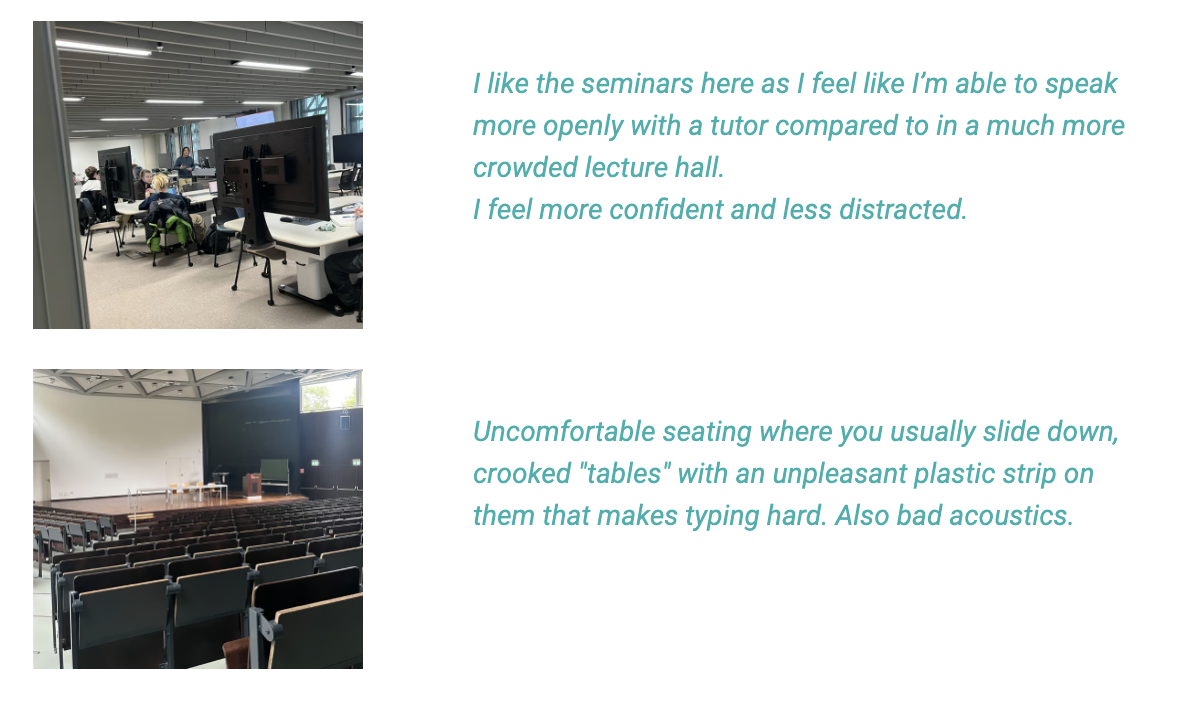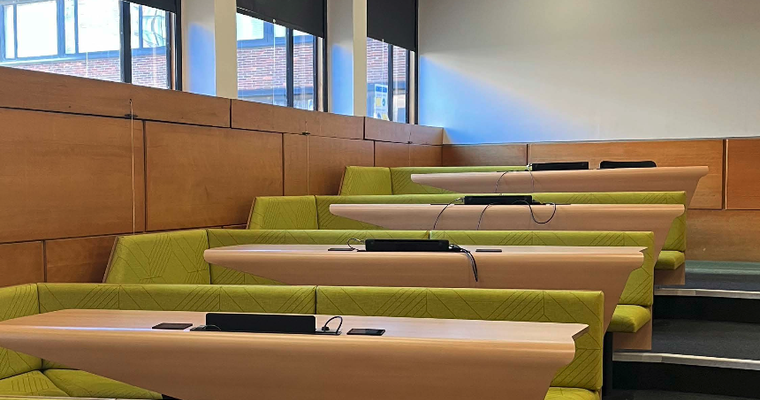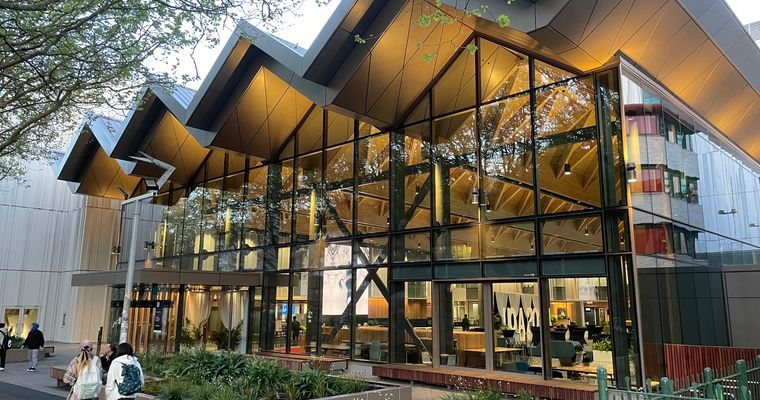What are the micro-frustrations for students on your campus
One of the most interesting findings from engaging with over 20,000 students about their campuses is that what we assumed would bother them, is not always the case.
Let's take teaching spaces as an example. Space audits pick up issues like peeling paint, carpet that needs replacing or broken fixtures. This data feeds capital spending priorities.
But what students tell us bothers them in teaching spaces can be quite different from what a space audit picks up, like:
Not being able to engage well with a tutor, or each other, due to the layout or design of a room
Rooms that make it hard to concentrate (often described as "sleepy") due to poor daylight or ventilation
Distracting furniture, like wobbly or slanted tables, or tables that don't fit the gear they need for the class
A room set up that conflicts with the style of teaching
Microphones that don't work, echo or are muffled
Rooms that feel cramped versus those that are spacious (this is a big one!)
Drab or uninspiring spaces that seem sterile
The list goes on. But it is an important list, because these factors distract students and impact how well they can learn in a space.
In turn, this impacts a KPI for every university - improving teaching quality. The role of estates teams in achieving KPIs like these are often under appreciated.
To illustrate this point, imagine the experience in the two rooms below, consider how much easier it is for one student to focus and learn over the other.

So are you spending money on the things that directly impact student experience, or on what a space audit prioritises?



